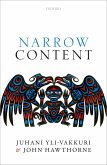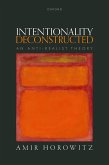Articulating a thought can be astoundingly easy. We generally have no trouble expressing complex ideas that we have never considered before, though not always. Articulating a thought can also be extremely hard. Our difficulties in articulating thoughts pervade many aspects of philosophical inquiry, as well as many ordinary situations. While we may overcome some of the challenges through education and practice, we cannot do away with them altogether. And the hardest thoughts to articulate often come to us unbidden: as we neither assemble them from other thoughts nor get them from any source of external information. They can come from us freely and spontaneously, and frequently we articulate them in order to find out what they are. In many cases, we would not bother articulating our thoughts if we already had this knowledge--yet, when we find the right words, we can often instantly tell that they express our thought. How do we manage to recognize the formulations of our thoughts, in the absence of prior knowledge of what we are thinking? And why is it that producing a public language formulation contributes in any way to the deeply private undertaking of coming to know our own thoughts? In Articulating a Thought, Eli Alshanetsky considers how we make our thoughts clear to ourselves in the process of putting them into words and examines the paradox of those difficult cases where we do not already know what we are struggling to articulate.
Dieser Download kann aus rechtlichen Gründen nur mit Rechnungsadresse in A, B, BG, CY, CZ, D, DK, EW, E, FIN, F, GR, HR, H, IRL, I, LT, L, LR, M, NL, PL, P, R, S, SLO, SK ausgeliefert werden.









